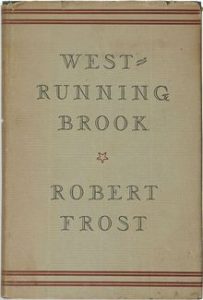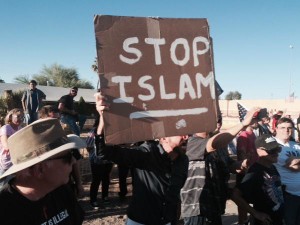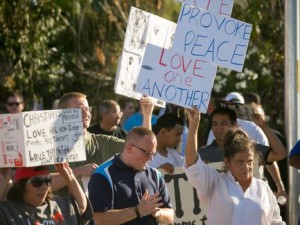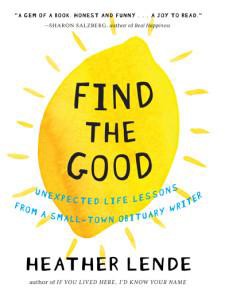Good
Thoughts.
July 3, 2020What does it mean to be good?
What would you die for you?
What mosts interests you? Name three.
•
•
•
What is the last thing you did with your whole ♥
“Now when I am old my teachers are the young.” -Robert Frost
Guns & Hate. And Good. A short essay by Dayle Ohlau
June 2, 2015
Guns and hate. Protests against Muslims outside a Phoenix mosque this past weekend. If there are truly only two emotions, love and fear, then what is it that these protesting Americans fear?
Dean Obeidallal a former attorney, host of SiriusXM’s weekly program “The Dean Obeidallah Show,” and a columnist for The Daily Beast,”wrote a piece for CNN online quoting Martin Luther King, Jr:
“History will have to record that the greatest tragedy of this period of social transition was not the strident clamor of the bad people, but the appalling silence of the good people.
http://www.cnn.com/2015/05/31/opinions/obeidallah-anti-muslim-rally/
He writes about the good he observed that day. The good people, the people who felt love, not fear, who came to counter-protest. Yet, there were also those trying to give what they got, calling the protestors names, like “Nazis”. When we belittle and fight hate with more hate, and violence, we are missing the opportunity to embrace the humanity of a group that is living in fear, and not understanding the power of the interconnectedness of all people. As a nation, when did we become so ethnocentric, wanting to deny immigrants and religions different from our own? Our country was founded on immigrants and religious freedom. In retrospect of history, it seems, at times, that we have not evolved very far. I am reminded of a chapter in Swiss psychiatrist and psychotherapist Carl Jung’s book Memories Dreams, Reflections, when he visits the Pueblo Indians in New Mexico, circa 1925:
“I observed that the Pueblo Indians, reluctant as they were to speak about anything concerning their religion, talked with great readiness and intensity about their relations with the Americans. ‘Why, (Mountain Lake said) do the Americans not let us alone? Why do they want to forbid our dances? Why do they make difficulties when we want to take our young people from school in order to lead them to the kiva (site of the rituals), and instruct them in our religion? We do nothing to harm (them). After a prolonged silence he continued, ‘The Americans want to stamp out our religion. Why can they not let us alone? What we do, we do not only for ourselves but for the Americans also. Yes, we do it for the whole world. Everyone benefits by it.”
Many protesting were Christians…in what name did they hate? Jesus? I am reminded of the bracelets that so many wear, “What would Jesus do?” Why did they forget to ask themselves this question before they began their hate-filled, fear-filled protest? I remember learning in my young Lutheran years that Jesus spoke of not resisting evil, but shining the light – – holding the conscious of God within.
The day of the protests I retrieved a beloved book by author Parker Palmer (founder the Center for Courage & Renewal) called, Healing the Heart of Democracy. He writes:“It breaks my heart when democracy is threatened, from within or without – – when we undermine ourselves by indulging in cheap animosities toward those who disagree with us instead of engaging our differences like grown-ups…”
He also writes:
I believe in the power of the human heart to do evil as well as good. The heart leads some to become terrorists and others to serve the hungry and homeless. The heart leads some to blow up federal buildings in order to ‘bring down the government’ and others to see that we are the government and must work together to fulfill democracy’s promise. The heart is a complex force field, no less complex than democracy itself, a maelstrom of conflicted powers that we ignore, sentimentalize, or dismiss at our peril. The human heart, this vital core of the human self, holds the power to destroy democracy or to make it whole. That is why our 19th-century visitor, Alexi de Tocqueville, insisted in his classic Democracy in America that democracy’s future would depend heavily on generations of American citizens cultivating the habits of the heart that support political wholeness.
Palmer dedicates his book to the memory of Christina Taylor Green, Addie Mae Collins, Denise McNair, Carole Robertson, and Cynthia Wesley.
“Christina died when an assassin in Tucson, Arizona, opened fire at a public event hosted by Congresswoman Gabrielle Giffords, who was seriously wounded. Addie Mae, Denise, Carole, and Cynthia died when violent racists bombed the 16h Street Baptist Church in Birmingham, Alabama. When we forget that politics is about weaving a fabric of compassion and justice on which everyone can depend, the first to suffer are the most vulnerable among us – – our children, our elders, our poor, homeless, and mentally ill brothers and sisters. As they suffer, so does the integrity of our democracy. “
I am grateful for those who chose not keep silent this past weekend and support religious freedom for those who were being protested against. I am grateful that Mr. Obeidallal honored the counter-protestors with his article for CNN. And I am hopeful, as Palmer writes, that when the common good is threatened in our country we will “hang on and hang together – that we have the power to do just that in our hands and in our hearts.”
From Terry Tempest Williams, “Engagement”:
“The human heart is the first home of democracy. It is where we embrace our questions. Can we be equitable? Can we be generous? Can we listen with our whole beings, not just our minds, and offer our attention rather than our opinions? And do we have enough resolve in our hearts to act courageously, relentlessly, without giving up – – ever – – trusting our fellow citizens to join with us in our determined pursuit of a living democracy?”
Heather Lende finds the good in the end…
May 26, 2015Journalist Heather Lende lives in the small town of Haines, Alaska, where the population is about 2,000. She’s written obituaries for almost 20 years at the Chilkat Valley News.
In doing so, she’s learned to “find the good,” as she says, not only in the lives of people she writes about, but also in her own life. Lende told Here & Now’s Robin Young that a portrait of the town she lives in also comes through her work.
https://hereandnow.wbur.org/2015/05/20/find-the-good-heather-lende



